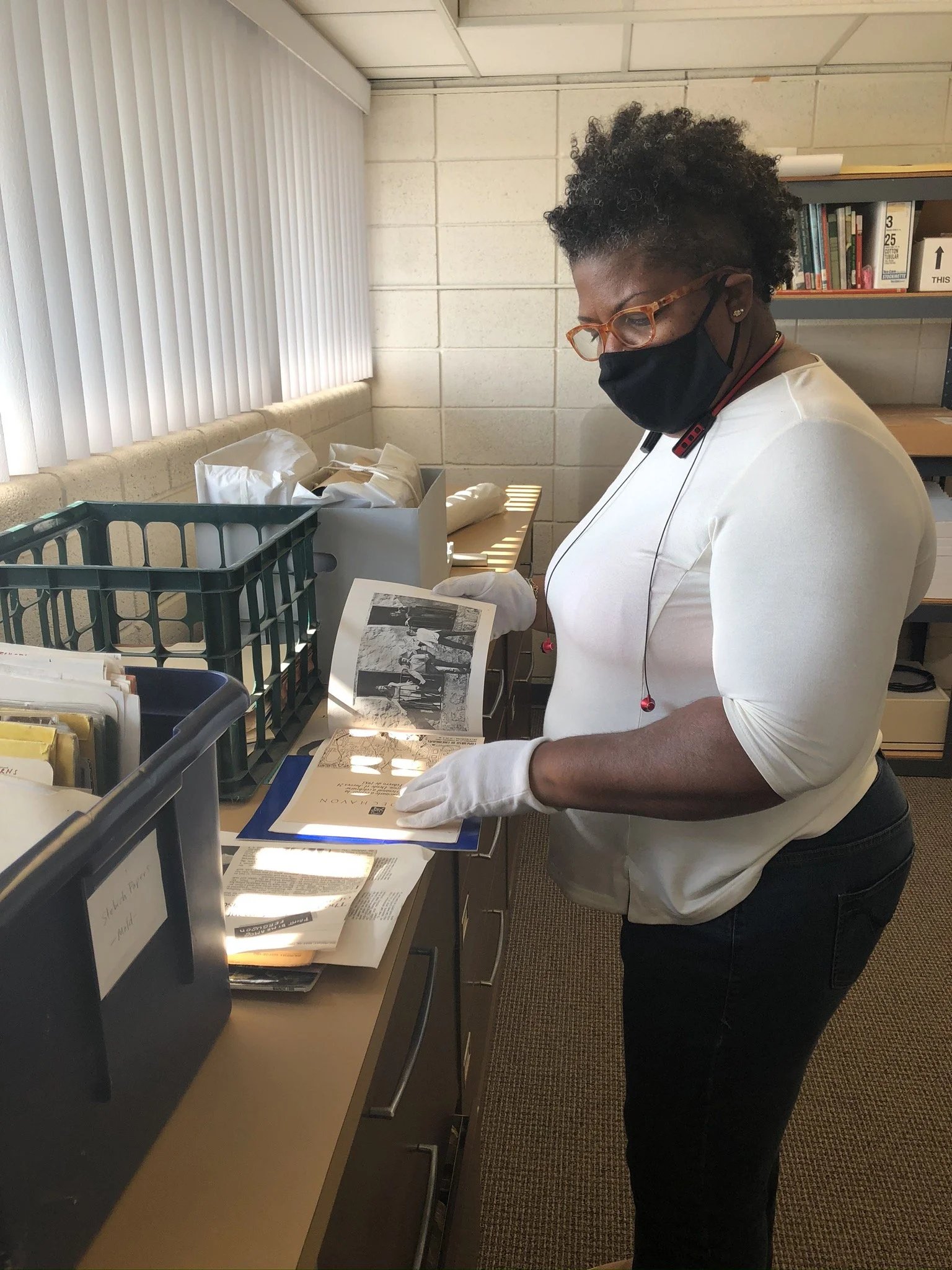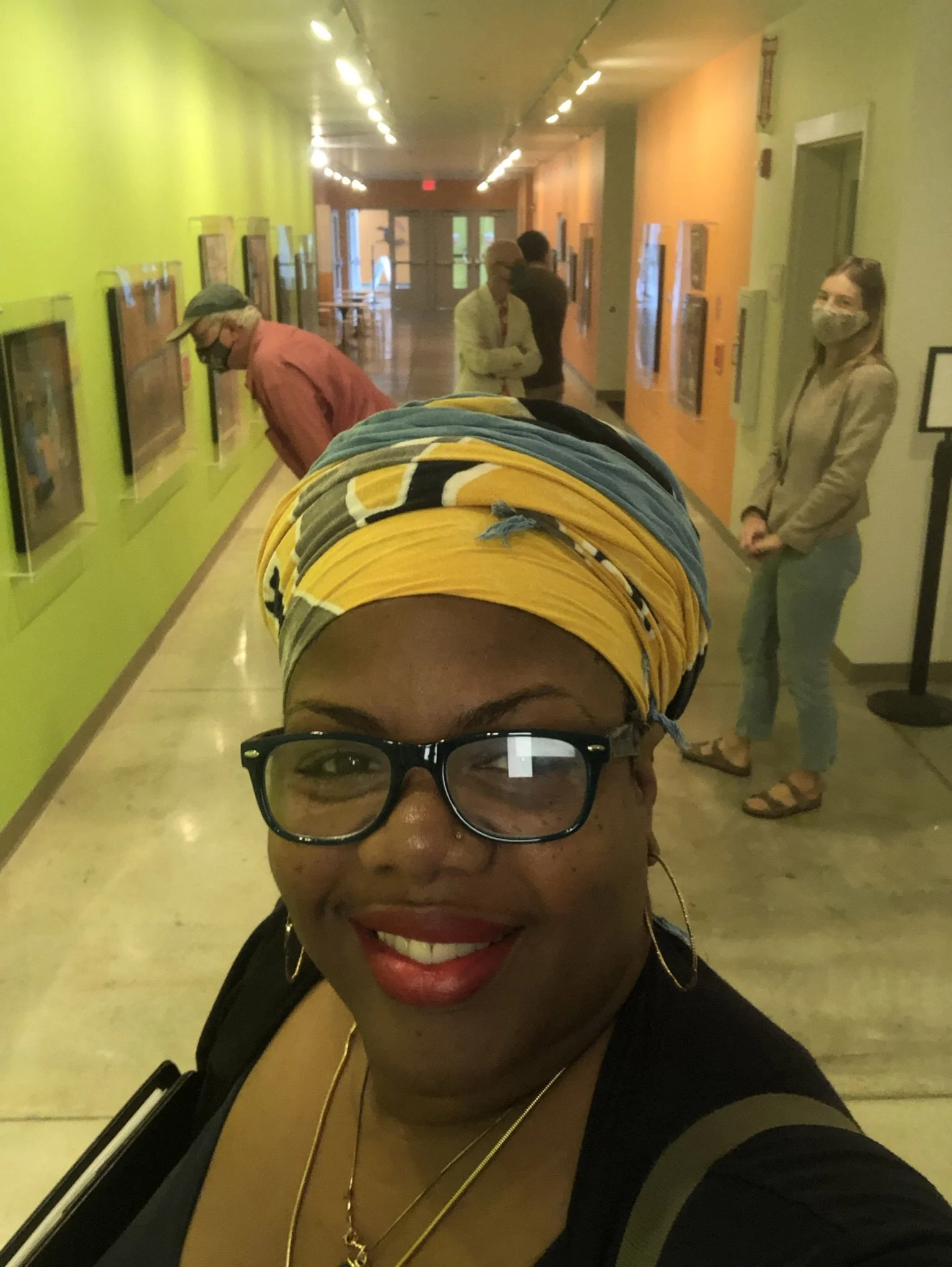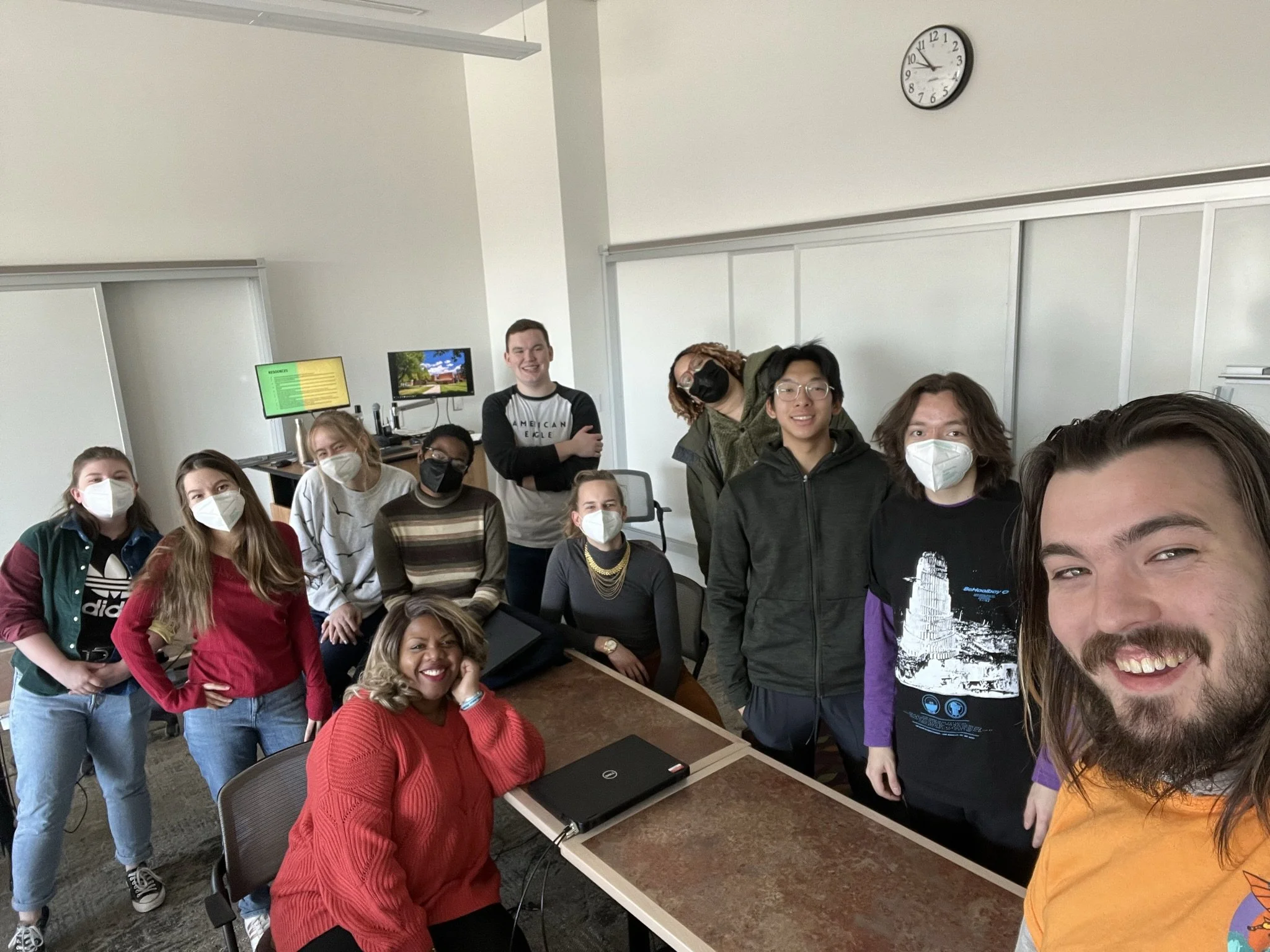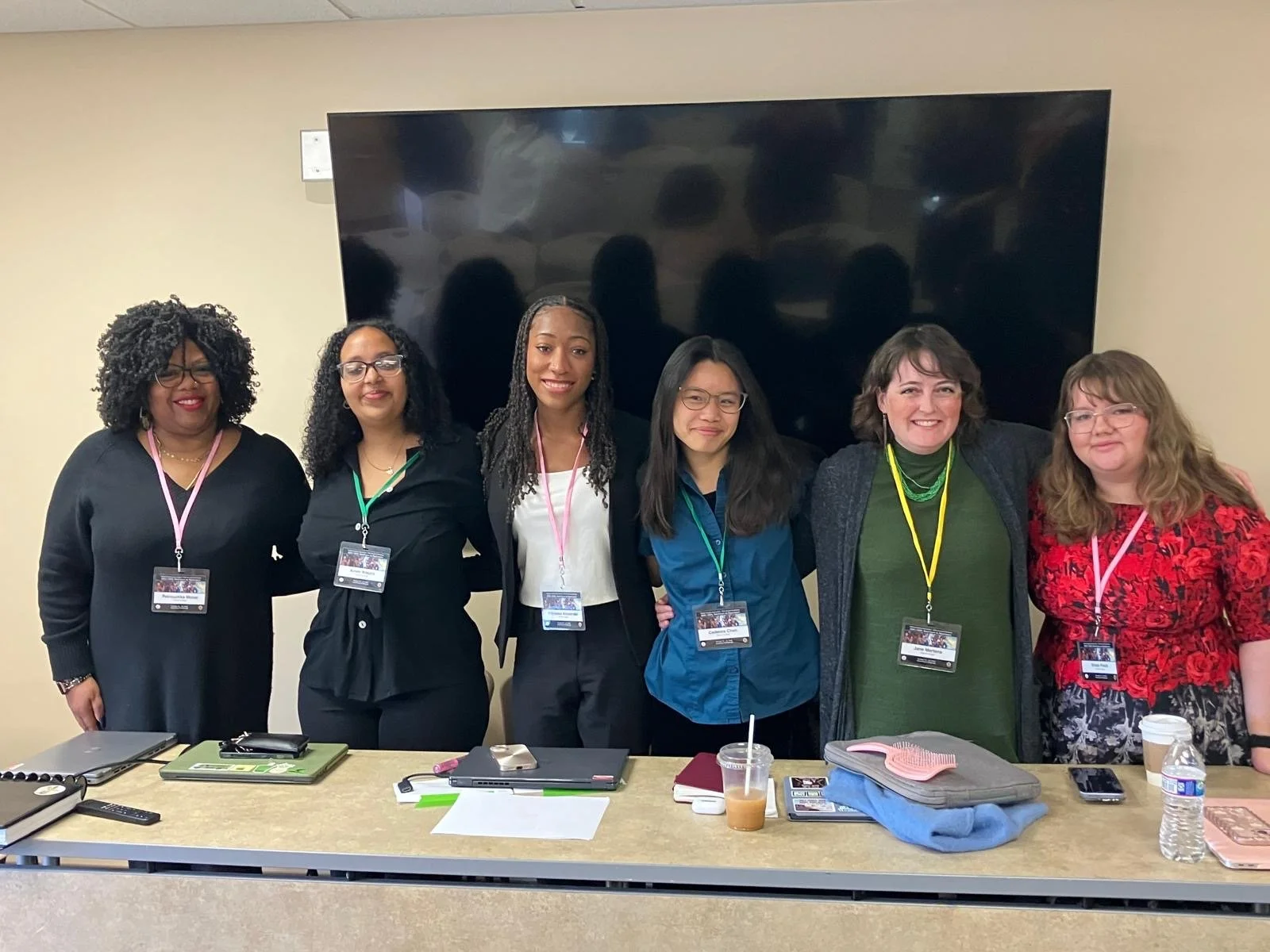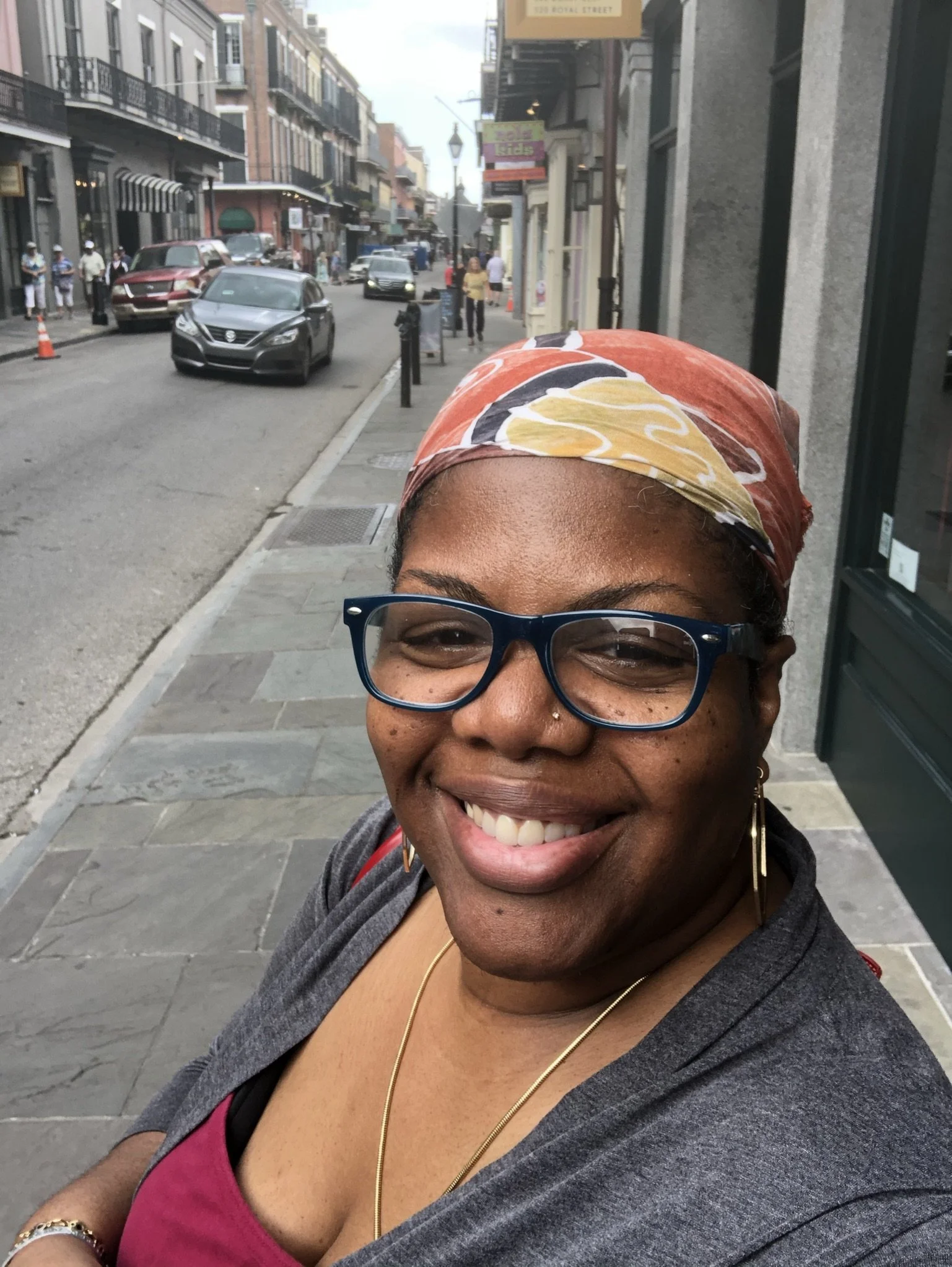CLIR/Mellon Post-Doctoral Fellowship Features Overview
Haitian Art Digital Crossroads
Haitian Art: A Digital Crossroads (HADC) is an NEH Humanities Collections and Reference Resources grant project by Grinnell College Libraries and the Waterloo Center for the Arts (WCA), led by Assistant Professor of Art History Fredo Rivera and CLIR/Mellon Postdoctoral Fellow in Data Curation for Haitian Visual Arts, Petrouchka Moïse, MBA, DDes. Dr. Moïse plays a lead role in digitizing and cataloging the largest public Haitian art collection in the world. The goal is to make the collection digitally accessible as a preparatory study for the creation of a digital hub for a network of online resources in Haitian and Caribbean studies. The HADC logic model identifies the practice of “traditional provenance” as a factor in creating systemic barriers that promote the lack of data related to Haitian visual art. Dr. Moïse formulated a counter-methodology, coined “going beyond provenance,” which provides an alternative lens in identifying the data fields omitted from the dominant narrative. The project also concerns itself with the state of Haitian art history, considering how the digital humanities can be used to think about Haitian art collections and resources globally.
HADC introduces three key focus areas to collect, record, and reintroduce Haitian visual art properly. The first is to establish a set series of photography processes to better display the nuances of the various art forms and their production. The second is to expand the current data fields and schema designs in order to accommodate the level of information omitted regarding the artist, the object, and the art form, and the third is to incorporate the Kreyol language to bridge terminologies lost in translation and to communicate more effectively within the various audiences. For HADC to be consistent in-process and delivery, we have created a series of foundational guidelines to establish best-practice models and proper ethical standards, which we will make transparent and publicly available through our online interface.
As part of the development of scholarship surrounding Haitian visual art, the project is creating a series of special topic courses that position Haitian art and culture as stakeholders in interdisciplinary discussion and analysis of history, art, and legacy. "How Natural Disasters Affects the Cultural Narrative of the Arts" is a comparative analysis from an artistic perspective taken from Louisiana after the 2005 Hurricane Katrina and Haiti after the 2010 Earthquake. This course is intended for all students to understand how significant events, such as natural disasters and man-made disasters, impact cultural and archival studies and how these events give new footing to the sense of cultural identity, Indigenous values, and community sustainability through textual, performance, and visual art.
As an introduction to "digital archiving" (the intersection of humanities and digital technology), the HADC series is designed to surveys tools, techniques, and critical approaches. Students will interrogate and identify emergent/critical alliances and networks that encapsulated and celebrated the protest, dissent, and incivility of resilience embodied in indigenous and marginalized communities.
For more information on HADC click here
Future Libraries, Archives, and Museums in Excavation
Future Libraries, Archives, and Museums in Excavation (FLAME) is a podcast series that explores what much-needed decolonization work in galleries, libraries, archives, and museums (GLAMs) looks like in current times. Our podcast series holds the microphone up to archivists, scholars, and museum staff who represent and/or work with collections pertaining to BIPOC (Black, Indigenous and People of Color) communities.
Focusing on the processes of curation and collaboration, the concept of CLIR’s “curated futures” speaks to the possibilities of imagination and speculation. FLAME is an open invitation for building a connected, complete, truthful, and therefore different future. We structured the podcast where each member brings their post-doctoral research to the forefront through decolonizing cultural archives. As the HADC project completed its first year, the importance of a Kreyol thesaurus was noted. With Kreyol being a word with overlapping social and historical complexities, we needed to define and illustrate how the word and its application were not a singular concept but rather a very fluid and contentious identity. Dr. Moise’s post-doctoral research focuses on the term "creole/Kreyol" and how language, identity, access, and ethics are managed throughout archives in the Diaspora. La Paperson points out how Indigenous communities have been "creating digital libraries of traditional knowledges" - this is a perspective the podcast goal is to explore and interact with archival stakeholders. This research will create opportunities to discuss how the HADC collection aligns with the Creole narrative in the Diaspora. In short, our work will be about both a re-definition and a comparative reconstruction of archives.
For more information on FLAME click here

